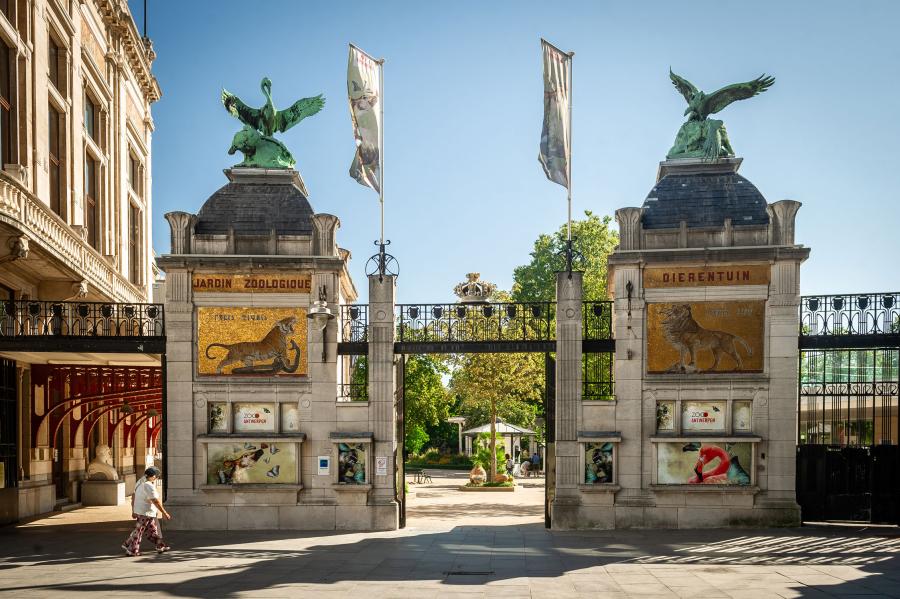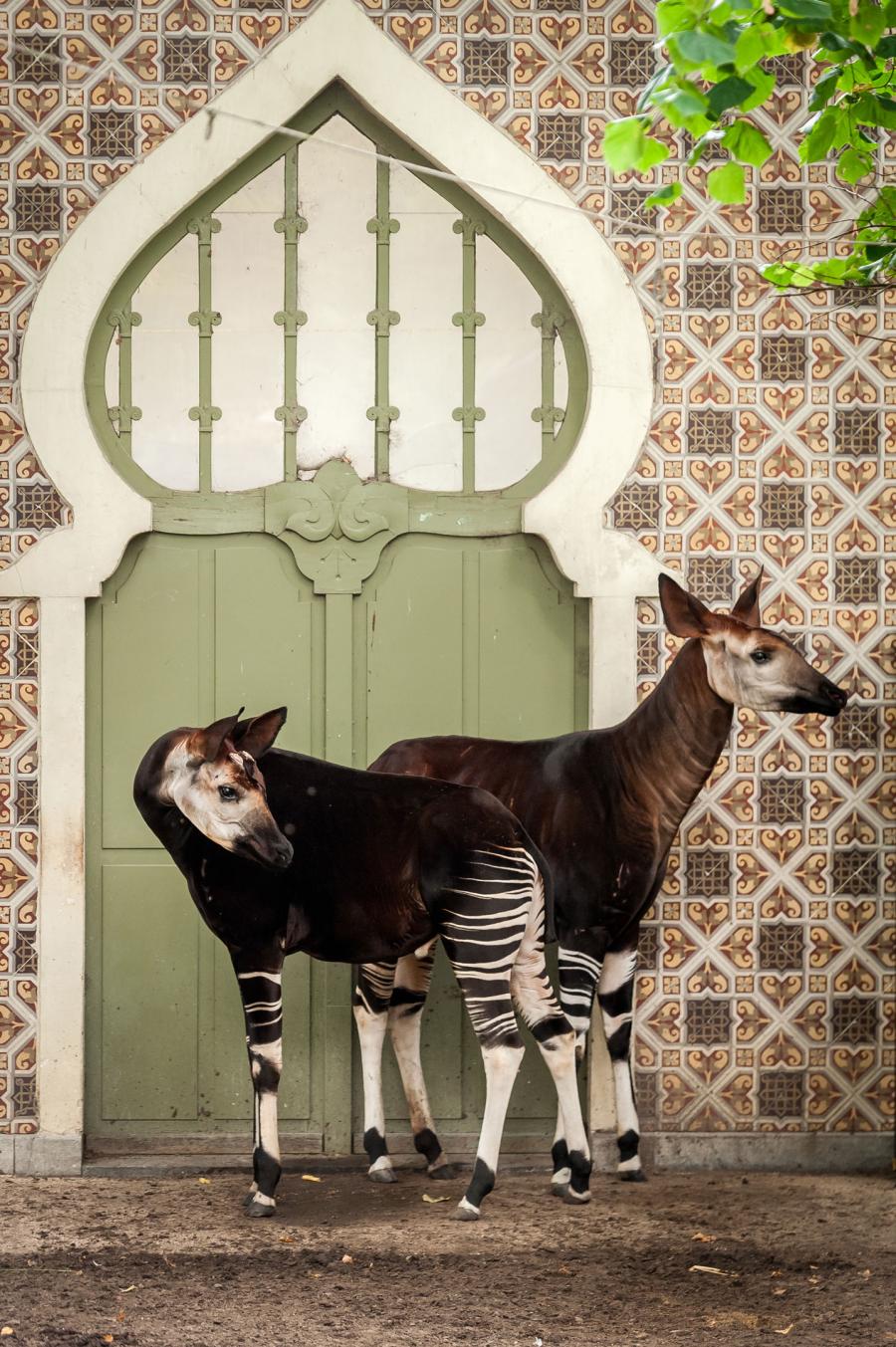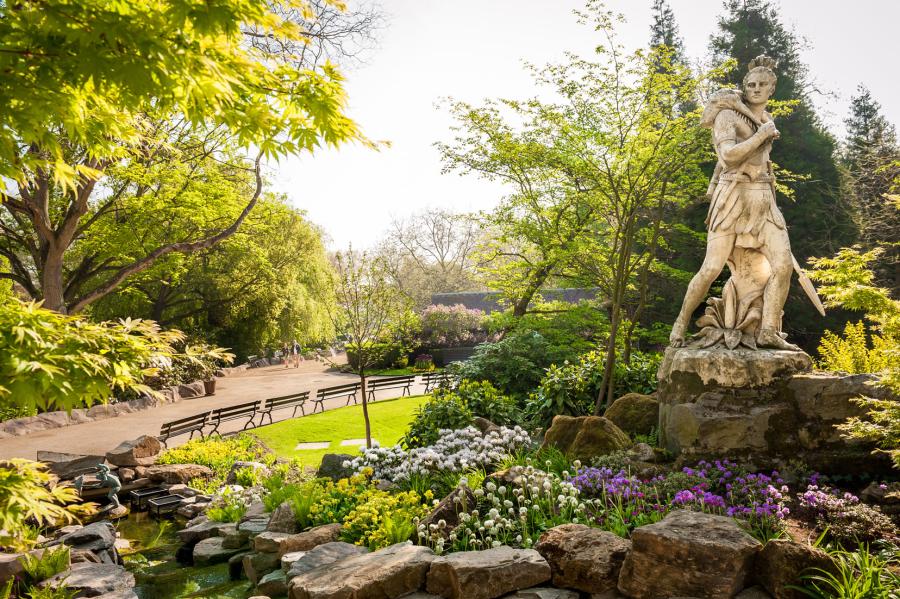Located amid historic buildings and manicured gardens in the heart of the city, the Antwerp Zoo—administered by the Royal Zoological Society of Antwerp since 1843— intertwines historical heritage with modern innovations that place animal welfare and guest experience front and center.
From sustainable dining to consultations with heritage consultants as facilities are updated, the zoo has mastered the art of balance, ensuring that their operations positively contribute to the experience of guests, the environment, and the animals who call the Antwerp Zoo home.
Ilse Segers, spokesperson/press and communications manager at the Royal Zoological Society of Antwerp, speaks to the zoo’s initiatives and the benefits of IAAPA membership.
-
What innovations, developments, or facility features at Antwerp Zoo are you most proud of?
One of the innovations and developments that we are particularly proud of at Antwerp Zoo is the transition towards communal enclosures where a diverse mix of 82 endangered species coexist. This transformation has significantly enhanced both the guest experience and animal welfare within our zoo. It not only provides a more enriching and immersive experience for our guests but also promotes natural behaviors and interactions among the animals themselves. This creates a dynamic and visually stimulating environment, fostering a deeper connection between our visitors and the wildlife we strive to protect.
-
The Antwerp Zoo has a rich history. How does the zoo team balance the preservation of this heritage with modern trends and advancements?
Antwerp Zoo is a fusion of heritage, exceptional architecture, and a commitment to animal welfare and scientific research. The Antwerp Zoo is fully protected as a monument and as a landscape, the only one in Flanders [Flemish region of Belgium]. This dual protection signifies that the park layout, with its beautiful greenery and numerous statues and ornaments, is just as important as the iconic buildings that exist here.
A team of heritage consultants from the Heritage & Monuments agency advises the staff at the Antwerp Zoo on the appropriate management of the protected monument, without losing sight of sustainability. A master plan has been developed, a heritage management plan has been created, and a heritage architect has been hired to oversee modernization processes in collaboration with all stakeholders.
The introduction of a new species can also bring about a need for facility enhancements. Some buildings were not originally designed for heavy animals like rhinoceroses, for example. Adjustments are necessary to provide a safe home for these larger animals.
-
How does the Antwerp Zoo engage with visitors and educate them about wildlife conservation?
We operate our own foundation, Antwerp Zoo Foundation (AZF), which supports our nature conservation projects. Our commitment to conservation and sustainability is at the core of our mission. To keep our members and supporters informed and engaged, we regularly communicate through all our social media channels. Additionally, updates and content can be found on our dedicated platform, My Zoo. We believe in transparency and involving our community in our conservation efforts, ensuring that together, we make a meaningful impact on preserving our planet’s biodiversity.
-
Can you share a sustainable practice that the Antwerp Zoo has implemented?
We want to respect the biotope in which humans and animals live together. We have chosen to increasingly replace more of our traditional meat dishes with a sustainable and tasty vegetarian alternative. 80% of the catering formulas on our menu are vegetarian. For the remaining 20%, Elisabeth Catering—the company that serves the Antwerp Zoo— uses poultry, meat, or fish. We also feel very strongly about our values and we like to see them reflected in those of our partners and suppliers. We select our suppliers with the greatest care and regularly organize on-site visits to closely monitor their actions with climate and animal welfare in mind. The way in which we present our buffets to our guests also ensures that we keep can maintain our zero-waste lifestyle. Wherever possible, we avoid the classic spoon-service or self-service, as this is where food waste can be at its highest.
-
What benefits has IAAPA membership offered the Antwerp Zoo thus far?
It has provided us with access to a wide range of educational resources and opportunities, which is of paramount importance to our organization. These resources have allowed us to stay updated with the latest industry trends and best practices, further enhancing our ability to provide an exceptional visitor experience.




